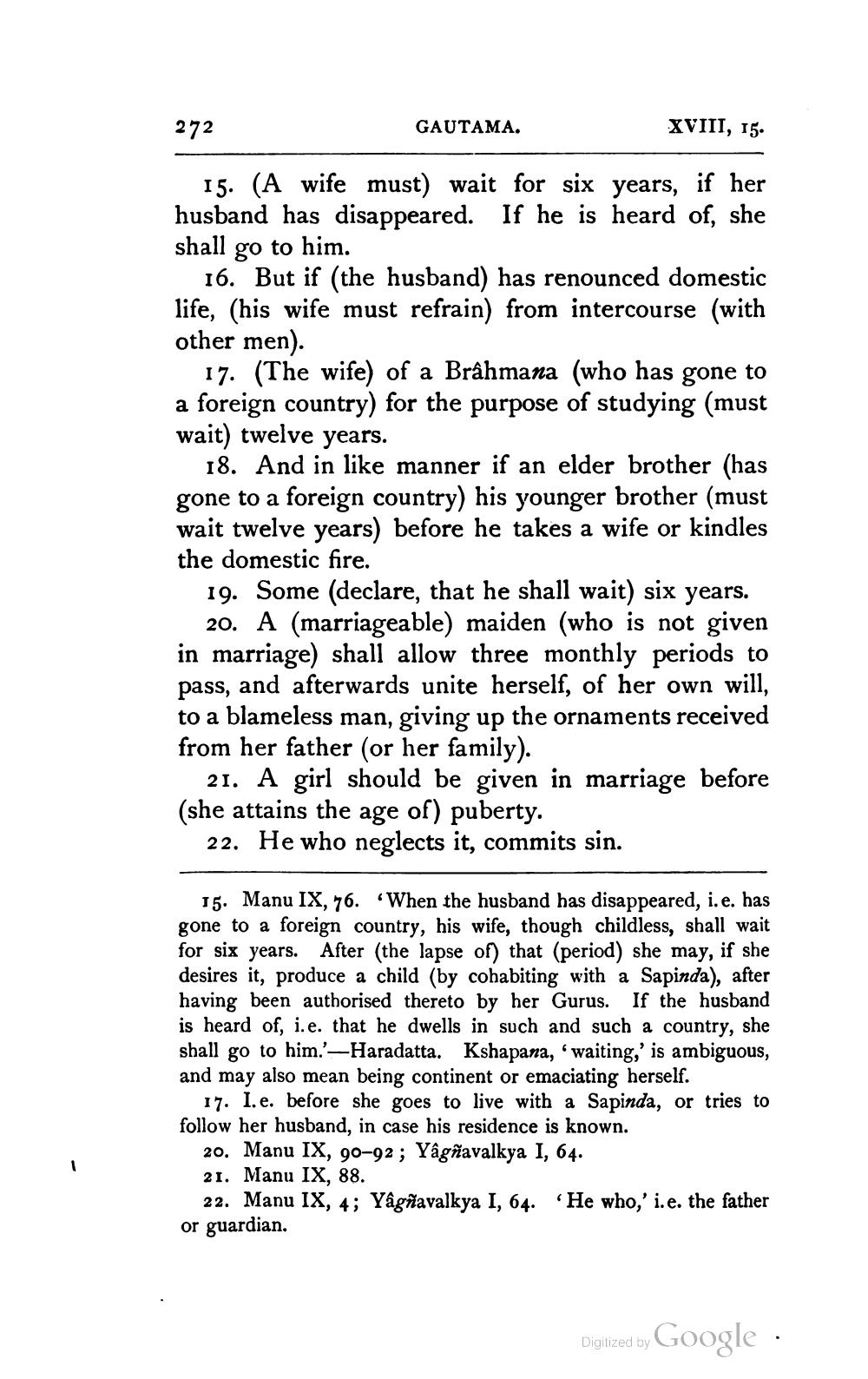________________
272
GAUTAMA.
XVIII, 15.
15. (A wife must) wait for six years, if her husband has disappeared. If he is heard of, she shall go to him.
16. But if (the husband) has renounced domestic life, (his wife must refrain) from intercourse (with other men).
17. (The wife) of a Brâhmana (who has gone to a foreign country) for the purpose of studying (must wait) twelve years.
18. And in like manner if an elder brother (has gone to a foreign country) his younger brother (must wait twelve years) before he takes a wife or kindles the domestic fire.
19. Some (declare, that he shall wait) six years.
20. A (marriageable) maiden (who is not given in marriage) shall allow three monthly periods to pass, and afterwards unite herself, of her own will, to a blameless man, giving up the ornaments received from her father (or her family).
21. A girl should be given in marriage before (she attains the age of) puberty.
22. He who neglects it, commits sin.
15. Manu IX, 76. When the husband has disappeared, i.e. has gone to a foreign country, his wife, though childless, shall wait for six years. After the lapse of that (period) she may, if she desires it, produce a child (by cohabiting with a Sapinda), after having been authorised thereto by her Gurus. If the husband is heard of, i.e. that he dwells in such and such a country, she shall go to him.'-Haradatta. Kshapana, 'waiting,' is ambiguous, and may also mean being continent or emaciating herself.
17. I.e. before she goes to live with a Sapinda, or tries to follow her husband, in case his residence is known.
20. Manu IX, 90-92; Yâgñavalkya I, 64. 21. Manu IX, 88.
22. Manu IX, 4; Yagñavalkya I, 64. "He who,' i.e. the father or guardian.
Digitized by Google ·




